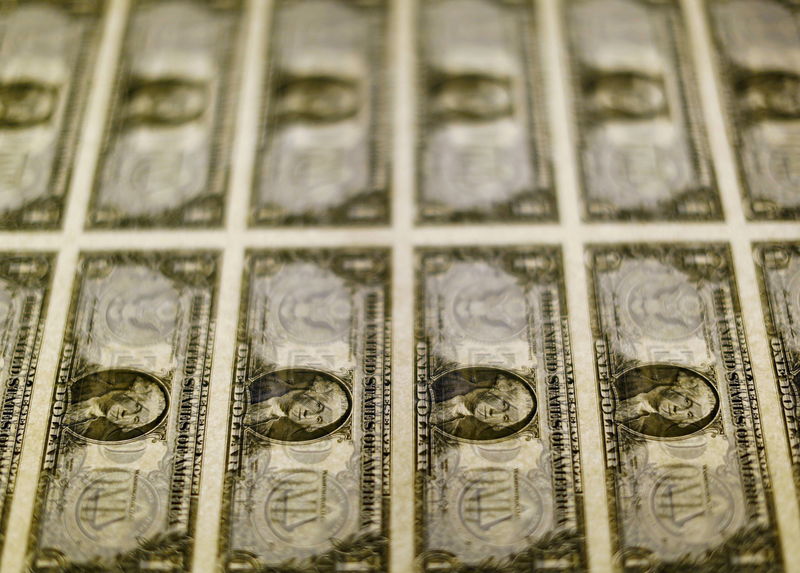Investing.com — Most Asian currencies traded lower on Monday as an unexpected rate cut in China provided little cheer, while the dollar edged lower after President Joe Biden said he will no longer seek re-election.
Biden endorsed Vice President Kamala Harris, who will now likely face Republican front-runner Donald Trump in the presidential race.
Biden’s action increased uncertainty about the upcoming presidential election, which in turn worsened sentiment toward risk-driven markets. This, coupled with concerns that a potential Trump presidency could also bring more clashes with China, weighed on the regional currency.
Dollar falls after news about Biden, interest rate cuts in focus
The and both fell 0.1% each in Asian trading amid uncertainty over the US political outlook.
Trump appeared ahead of both Biden and Harris in the polls, CBS data showed last week. Analysts expect that a Trump presidency could lead to higher inflation, especially if he continues with stricter trade restrictions and higher import tariffs against China.
But Harris is now expected to pose a bigger challenge to Trump, especially as reports indicate that all Democratic Party chairs have endorsed Harris. Democratic fundraising also topped $50 million after Biden’s endorsement of Harris.
The dollar had risen last week amid speculation about the 2024 election. But the dollar’s rise was still largely held back by increased expectations that the Federal Reserve would cut interest rates starting in September.
This idea hit the dollar hard in early July and also provided some relief for Asian markets.
Chinese yuan near eight-month low after surprise loan interest rate cut
The Chinese yuan weakened on Monday, rising 0.1% to 7.2729, almost reaching levels last seen in November.
The yuan’s weakness came after the People’s Bank of China unexpectedly cut its benchmark to further ease monetary policy and support the economy.
The reduction comes as China struggles with a slowing economic recovery. Concerns about this have increased pressure on the yuan.
The yuan’s recent weakness also came amid concerns about a Trump presidency, as Trump has maintained negative rhetoric toward Beijing.
Broader Asian currencies moved from flat to low, weighed down by uncertainty over US policies. The Japanese yen pair was flat around 157.44 yen after seeing wild swings last week due to suspected government intervention.
The Australian dollar pair fell 0.2%, while the Singapore dollar pair was flat.
The South Korean won pair rose slightly, while the Indian rupee pair fell 0.1% after rising to record highs last week.


